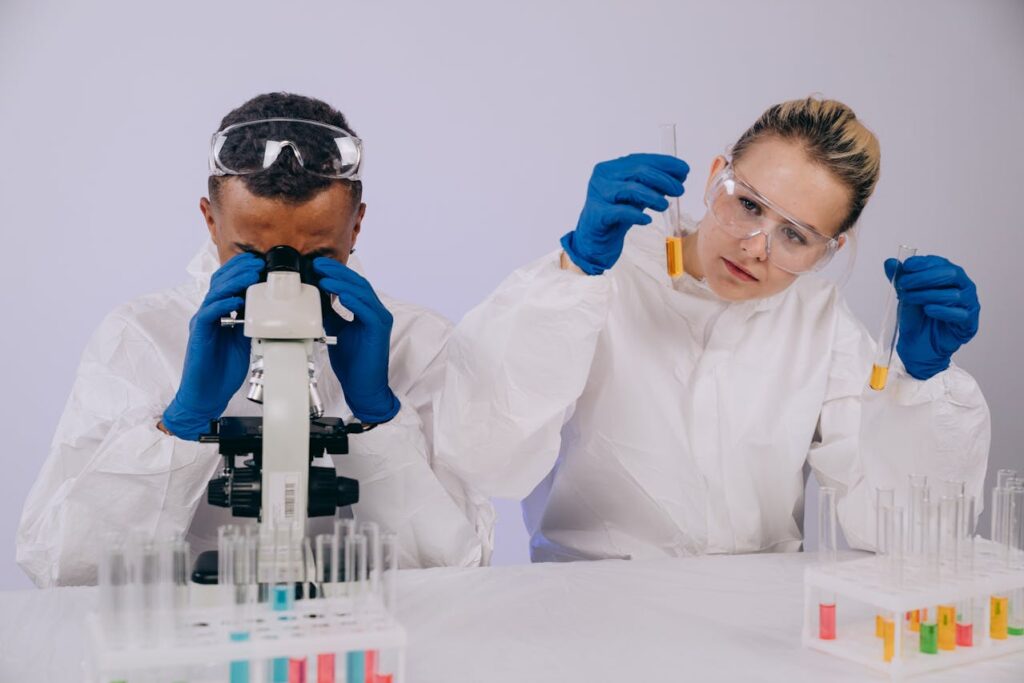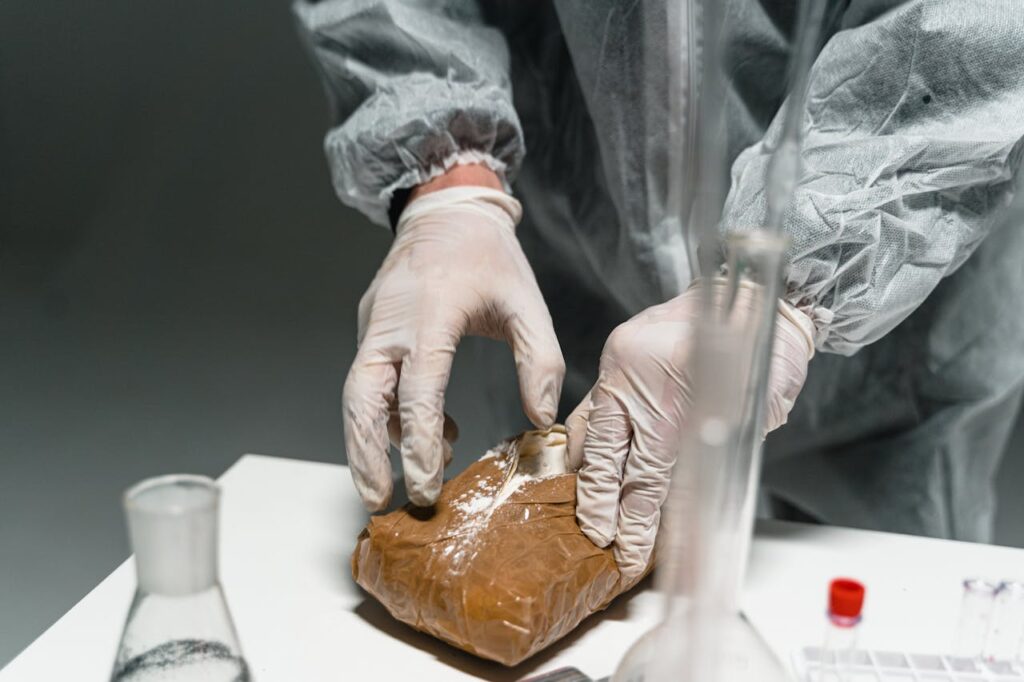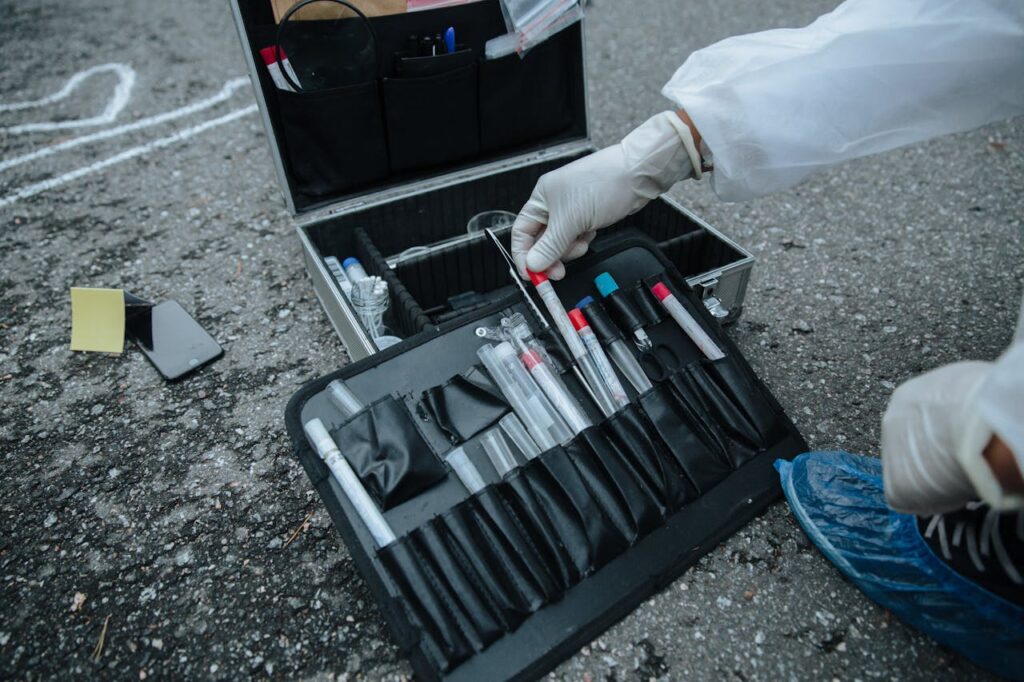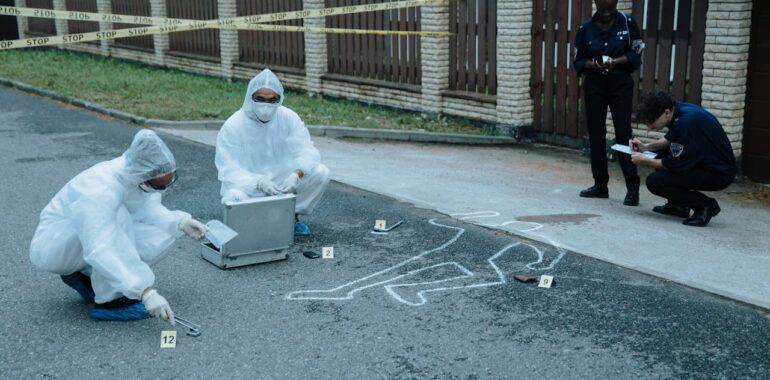Key takeaways
- If you are interested in a career in forensic science, you need to know the courses needed to be a forensic scientist.
- To become a forensic scientist, you need at least a bachelor’s degree in forensic science.
- Alternate degrees that you can pursue include a bachelor’s degree in biology, a bachelor’s degree in chemistry, a bachelor’s degree in computer science, and so on.
- The preferred level of education for a forensic scientist is a master’s degree in forensic science or a related field.
- To become eligible for a bachelor’s degree in forensic science, you need to pursue courses such as AP biology, AP chemistry, Mathematics, and Statistics at the high school level.
- Entry-level jobs that lead to a career as a Forensic Scientist include Forensic Science Technician, Forensic Analyst, Lab Technician, and so on.
- A research background is essential to become a forensic scientist.
Forensic science is a relatively new and growing field. Its rise to popularity is primarily due to its usefulness in criminal investigations. Forensic science has completely revolutionized the way investigations are conducted. Through scientific tools and technologies, forensic scientists can provide insights invisible to the naked eye.
However, forensic science is a scientific field. If you want to pursue a career in forensic science, you must take relevant courses and enroll in a forensic science degree. In this guide, you will find the complete courses needed to be a forensic scientist at every level of education.
What is forensic science?

Forensic science is the application of science and scientific methods to criminal investigations. Forensic scientists are among the first to reach a crime scene after a detective. They scour the scene looking for clues, collecting evidence, including fluids, materials, fingerprints, and so on. It is a highly specialized field that is essential in criminal investigations.
Related: What is the purpose of forensic psychology?
Though relatively new, it has completely transformed the way crime scene investigation takes place. Through the use of scientific methods, principles, and theories, forensic scientists unlock key pieces of information that can shape the way an investigation goes. Forensic science professionals analyze evidence to establish facts, which can help determine and prove innocence or guilt.
What does a forensic scientist do?

A forensic scientist applies scientific methods through tools and technologies to aid criminal investigations. The roles and responsibilities of a forensic scientist vary by job type and organization of employment. However, regardless of their role, they shape criminal investigations.
They help identify suspects and victims, determine the cause of death, identify the manner of death, and help establish connections between suspects and criminal activities. Forensic scientists are among the first to reach the crime scene after the detectives and are responsible for analyzing the crime scene and collecting the evidence. They collect fluid samples, fingerprints, DNA samples, hair, fibers, blood samples, and so on. They then take the collected evidence to the lab for analysis.
The exact procedures followed depend on the type of evidence gathered and the type of case they are investigating. These can include:
- DNA Profiling – Identifying individuals through DNA analysis
- Chemical Analysis – toxicology analysis, checking for drugs and other chemicals
- Fingerprint Analysis – Fingerprint analysis can help identify the criminal
- Bloodstain Pattern Analysis – Bloodstain pattern analysis can help determine the sequence of events.
- Ballistics can help determine which firearm was used for the crime.
Forensic scientists are often asked to testify in court as expert witnesses. Their testimony can help add clarity to the case as they provide scientific facts proven through careful analysis in the laboratory.
How to get into forensics?
If you are considering becoming a forensic scientist, you will need to pursue the classes required for forensic science as well as obtain the degrees needed for a forensic science career. Entry into the field required an interest in science, specifically in biology and chemistry. However, some areas within the field also require knowledge of physics and computer science.
Forensic science is a highly specialized field. If you want to become a part of such a highly specialized field, you have to decide to do so quite early on in your academic career. In fact, you start preparing for a career in forensic science from high school. Below you will find a list of courses needed for forensic science at every education level.
List of courses needed to be a forensic scientist

Career planning is essential, especially if you aspire to pursue careers as specialized as forensic science. Here, you do not have the option to keep your options open by choosing a broad range of courses. You will need to choose courses that will help you lead a career in forensic science.
High School – What classes are needed for forensic science?
If you are interested in a career in forensic science, you need to take the following courses.
- Biology
- Chemistry
- Physics
- Physiology
- Statistics
- Mathematics
Moreover, you need to consider taking Advanced Placement (AP) courses, specifically in biology and chemistry. These courses can help you develop the foundation you need to fulfill the forensic science course requirements for college.
Related: Best forensic science colleges in Texas
Bachelor’s level – What classes are required to be a forensic scientist?
If you are wondering how to become a forensic science professional, this is the section for you. The ideal entry-level qualification for aspiring forensic scientists is a bachelor’s degree in forensic science. However, there are alternative degrees that you can pursue and be eligible for a career in the field of forensics. Typically, the program you choose should feature core scientific disciplines. Here are some programs that can make you eligible for a career in forensic science.
Bachelor’s in Forensic Science
If you are wondering about how to work in forensic science, but are unsure as to which concentration track you want to pursue, then a bachelor’s in forensic science is the ideal program for you. A bachelor’s program lasts four years, starting with building a foundation in the field of forensic science in the early semesters and moving on to providing specialized knowledge in a niche or concentration track of your choice. Options include:
- Crime Scene Investigation
- Forensic Chemistry
- Forensic Pathology
- Forensic Toxicology
- Forensic Pathology
- Ballistics
- Forensic Toxicology
- Forensic Odontology
- Forensic Engineering
With these forensic science course qualifications, you can pursue forensic science jobs such as Crime Scene Investigator, Forensic Science Technician, Forensic Analyst, and even be eligible for entry-level jobs in more specialized fields such as Forensic Psychology.
Bachelor in Biology
A bachelor’s degree in biology features a core curriculum focusing on biology principles and research methods. Throughout the four-year program, you will first develop core competencies in the field and later move on to develop niche-specific competencies. Specialization options within biology include:
- Molecular biology
- Microbiology
- Genetics
- Ecology
- Neuroscience
Moreover, you will develop the skills needed to conduct research and laboratory experiments. Lab experience and skills are particularly beneficial for aspiring forensic science professionals. Additionally, knowledge of biology principles and theories can aid in criminal investigations. With a degree in biology, you can get forensic science jobs such as Forensic Biologist, Crime Science Technician, DNA Analyst, and so on.
Bachelor in Chemistry
A bachelor’s degree in chemistry is ideal for those who want technical roles in forensic science. Through the program, you will develop a wide range of competencies through exploration of topics revolving around matter, its properties, its transformation, how it reacts with other materials, and so on. You will cover a wide range of topics, including organic and inorganic chemistry, analytical chemistry, physical chemistry, biochemistry, and more.
With a degree in chemistry, you can pursue a wide range of forensic science jobs in forensic science such as a Forensic Chemist, Forensic Toxicologist, Crime Lab Analyst, Forensic Serologist, Forensic Ballistics Specialist, and so on.
Bachelor’s in Computer Science
Those interested in digital forensics or cybersecurity should consider a Bachelor’s Degree in Computer Science. You can either pursue a specialization in Digital Forensics or Cyber Security, depending on your area of interest. Through the program, you will develop the skills needed to solve cybercriminal activities, including identity theft, fraud, scams, and so on.
With a degree in computer science, cybersecurity, or digital forensics, you can pursue forensic science jobs such as a Computer Forensic Scientist, Forensic Science Technician, Digital Forensic Investigator, and so on. If you are wondering how to become a forensic analyst, this is the program for you.
Related: How are criminal justice and cybersecurity related?
Master’s level
Those interested in finding out how to work in forensics should consider looking into forensic scientist course requirements. Contrary to popular belief, you do not need a doctoral program in forensic science to become a forensic scientist. In fact, for many jobs, a master’s degree in forensic science is the preferred forensic sciences course qualification for those who want to be a forensic scientist.
However, you need a strong research background, sufficient work experience, and professional achievements to be able to progress in your career and obtain senior-level positions.
Become a forensic scientist with the right qualifications!

If you want to become a forensic scientist, you only need to look up the courses needed to be a forensic scientist at the high school level. To pursue a career in the field, you should be looking up how to get a degree in forensic science. Luckily for students aspiring to attend college in the United States, there are several colleges and universities in the area that offer a forensic science degree.
Moreover, aspiring forensic scientists can pursue alternative programs and choose relevant majors for forensic scientists to prepare for a career in the field. However, to be eligible for a forensics degree, you need to opt for courses such as AP Biology, AP Chemistry, Mathematics, Statistics, and so on. Don’t just keep on wondering how to get a forensics degree; view the list of colleges offering a degree in forensic science and start applying today!
